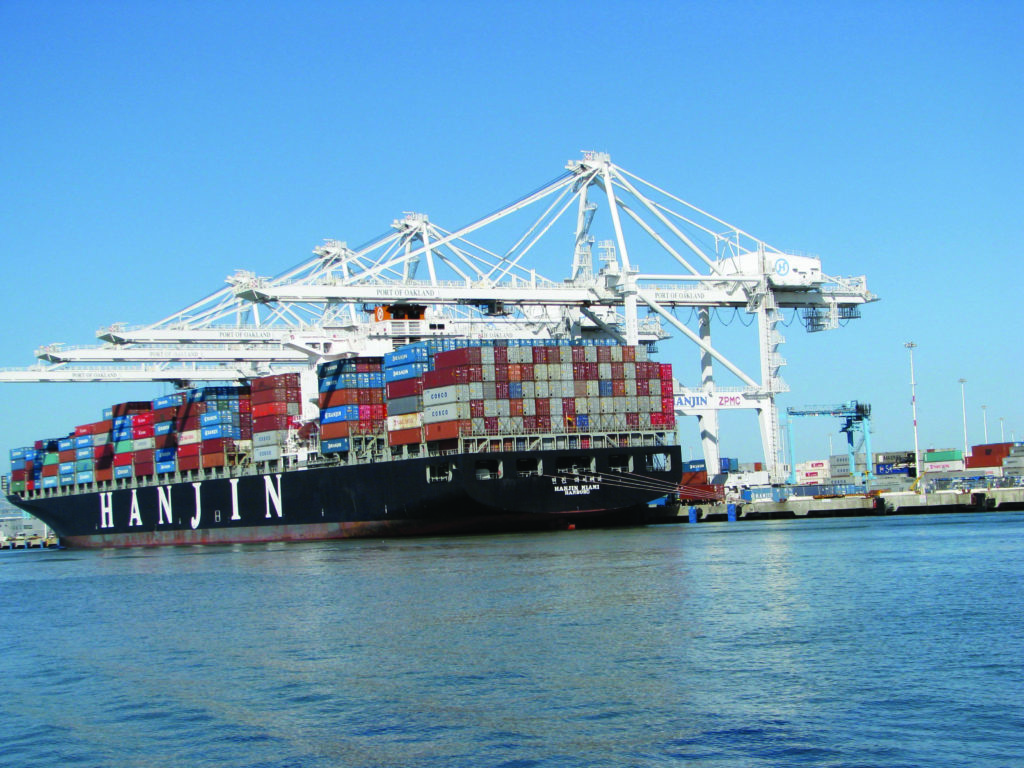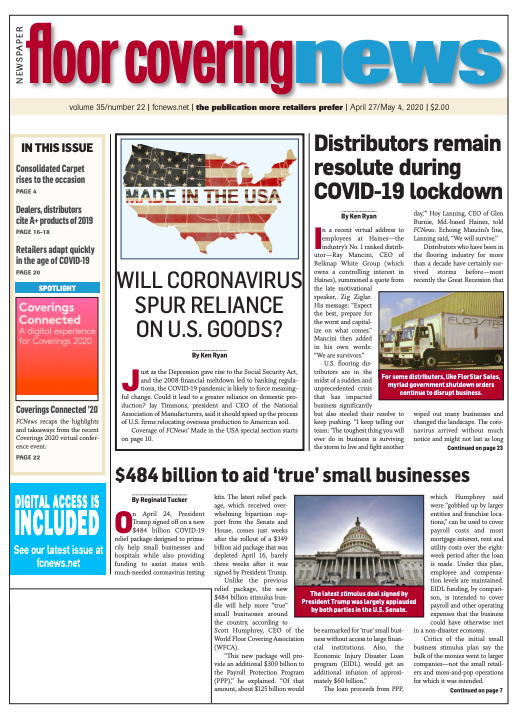By Reginald Tucker

With the novel coronavirus dominating so much news coverage these days—and rightly so—it’s easy to forget that merely a year ago there was another issue consistently making headlines: tariffs on Chinese flooring products and the reciprocal, retaliatory hikes on American-made goods. While the issue is no longer front and center, it doesn’t mean tariffs are no longer relevant.
“The Trump 301 tariffs are still in place for wood flooring from China, although most vinyl products have been exempted through August 2020,” said Don Finkell, CEO of American OEM. “The Phase One deal reached with China back in January did not reduce the wood flooring tariffs—it only froze them in place.”
That not only means the 25% tariffs imposed on certain hardwood flooring products from China are still very much in effect, but the costs of importing are actually much higher when you weigh other factors. “There are still anti-dumping and countervailing duties in place on Chinese engineered wood flooring,” Finkell said. “The combination of these tariffs exceeds 50% and will most likely stay in place for the foreseeable future—least until the November Presidential election.”
When you examine the import fees more closely, there are are actually four levels of tariffs or duties for those who produce hardwood flooring in China and then ship it to the U.S. “Beyond the ‘Trump tariff,’ there’s an anti-dumping duty, a countervailing duty and a standard duty,” said Brian Carson, CEO of AHF Products, which markets the Bruce, Hartco, Homerwood, LM Flooring and Robbins brands. “When you add those four together, they add up to what it really costs to bring product into America. At the end of the day, it’s going to be just as difficult to ship hardwood from China to the U.S. over the next 12 months as it was the last 12 months.”
Given the fact that so much hardwood production has shifted to Southeast Asian countries—including Indonesia, Cambodia and Vietnam—one could argue that the impact of tariffs on engineered wood from China might be blunted in the grand scheme of things. This, observers say, is due to the fact that some companies have already switched their sources of supply in anticipation of escalation in tariffs under the Trump Administration.
AHF Products, whose LM Flooring-branded hardwood floors are sourced out of Cambodia, is a case in point. Several months ago the company doubled its production out of its factory there, and it is in the midst doubling capacity again this quarter. “Those products are all duty free and tariff free,” Carson stated.
Fragile supply chain
There’s no doubt that the establishment of alternative sources outside China has helped those U.S.-based manufacturers who import a percentage of their products dodge the tariff issue. But what the COVID-19 pandemic has done—outside of the obvious health and economic consequences—is expose vulnerabilities in supply chains across a number of industries. “With this virus, we are all being reminded of how fragile supply chains of the world have become,” Carson stated.
Does that necessarily equate to an advantage for U.S.-based suppliers? Carson said he thinks so. “In America, you can place an order for a product and get it delivered in a week or two. But if you order a container of vinyl from China, and you don’t get it right, you could be paying for that mistake for weeks. I think China will remain an issue, but I also think you will receive a return for the security of domestic manufacturing. You’ll see that outside of flooring as well.”
Then there are those like Brad Williams, vice president of sales and marketing for Boa-Franc, maker of the Mirage brand of hardwood flooring. Although he is uncertain as to how relations with China will go from here, he said he believes there will be a movement toward the need for transparency at the consumer level and the retailer level in the future.
“Consumers and retailers will want to know more where their products are coming from, what is in these products, and how are they affecting the environment and so on,” he explained. “This heightened need for transparency by the consumer will force the retailer to do the same. How will all of that affect imports from any country into the USA? Only time will tell.”

